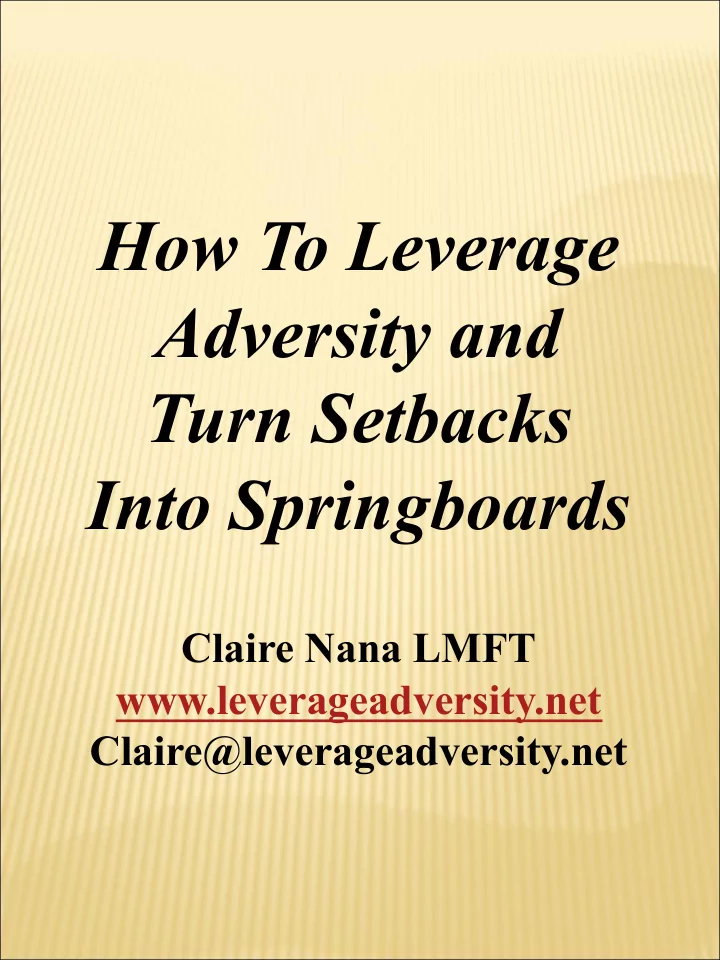

How To Leverage Adversity and Turn Setbacks Into Springboards Claire Nana LMFT www.leverageadversity.net Claire@leverageadversity.net
Post-Traumatic Growth Post-traumatic growth is the positive psychological change that results from the attempt to find new meaning and resolve after a traumatic event.
What kind of traumatic events lead to Post- Traumatic Growth? Traumatic events that shatter a person’s fundamental beliefs, values, self-perceptions and perspective of others and the world.
It is the struggle to find new meaning in the aftermath of the trauma that is crucial to positive psychological growth.
The Five Domains Of Post-Traumatic Growth An Increased Sense of Openness: Possibilities not present before now arise. A Deepening of Relationships: Relationships now have much greater importance. An Increased Sense of Personal Strength: “If I can handle that, I can handle anything.” A Greater Appreciation for Life: Often felt through a changed sense of priorities. A Deepening in Spirituality: One’s sense of spirituality becomes more salient.
There is a paradoxical element to all domains of post-traumatic growth – meaning that growth is not defined as the absence of distress symptoms, rather, growth is defined as the presence of both positive and negative symptoms.
The more prolonged the trauma, the greater the capacity for growth.
It is the traumas of the greatest magnitude that also lead to the most profound growth.
So how do we differentiate Post Traumatic Growth from resilience?
Different from the concepts of resilience, emotional toughness, or optimism, post-traumatic growth involves not just the ability to resist and avoid damage from highly stressful life events, but the ability to adapt to the stressful event in such a way that growth moves the client beyond pre-trauma functional levels (Tedeschi & Calhoun, 2004).
Imperative in this adaptive response is the struggle to transcend the trauma.
In doing so we often: Craft new meanings Revisit and reshape our priorities Shift our values to reflect more clearly what we believe Examine new possibilities Recognize previously unrealized strengths
So how adaptive are we?
Reports of growth experiences in the aftermath of traumatic events far outnumber reports of psychiatric disorders (Powell & Garlington, 2012).
Recommend
More recommend